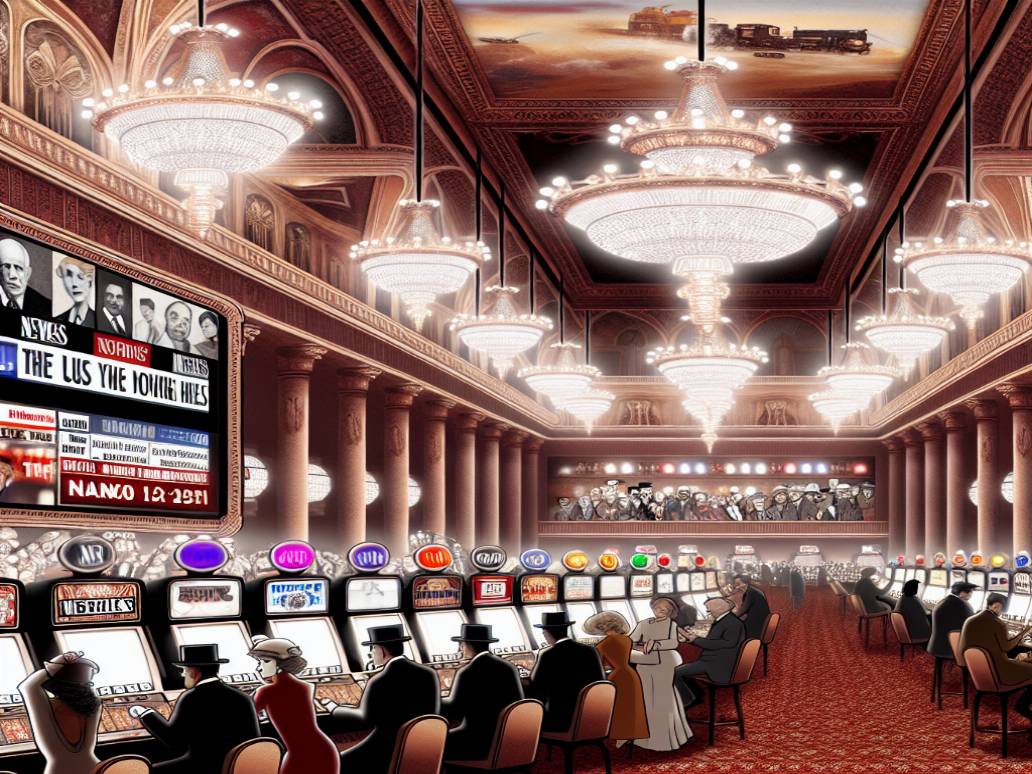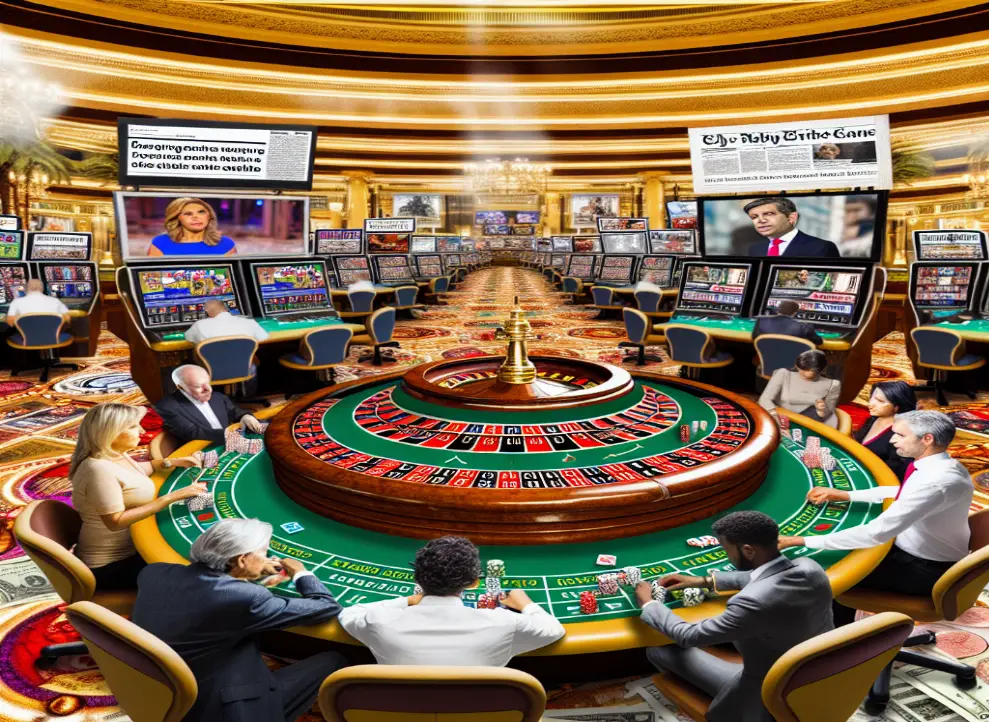Opening a casino can be a lucrative business venture, but it requires careful planning and consideration. Before diving into this industry, it”s important to research and understand the legal requirements and regulations that govern casinos in your area. This includes obtaining the necessary licenses and permits to operate a casino legally.
Additionally, you”ll need to create a solid business plan that outlines your casino”s target market, marketing strategies, and financial projections. Consider factors such as location, competition, and target audience when developing your business plan. It”s also crucial to secure funding for your casino, whether through investors, loans, or personal savings.
Once you have all the necessary legal and financial aspects in place, you can begin the process of designing and building your casino. This includes selecting the right games and equipment, hiring staff, and creating a welcoming and exciting atmosphere for your customers. Remember to prioritize customer service and create a safe and enjoyable gaming experience for all patrons.
Legal Requirements for Casino Licensing
In order to obtain a casino license, operators must adhere to strict legal requirements set forth by the regulatory body in their jurisdiction. These requirements are in place to ensure the integrity of the gaming industry and protect players from fraud and other illegal activities.
Some common legal requirements for casino licensing include conducting thorough background checks on owners and key employees, implementing responsible gambling measures, and maintaining financial stability. Operators must also comply with anti-money laundering regulations and provide a safe and secure gaming environment for their patrons.
- Background checks on owners and key employees
- Responsible gambling measures
- Financial stability
- Anti-money laundering regulations
- Safe and secure gaming environment
Failure to meet these legal requirements can result in the denial or revocation of a casino license, as well as fines and other penalties. It is crucial for operators to stay up to date on the latest regulations and ensure that their operations are in full compliance with the law at all times.
Overall, obtaining a casino license is a complex process that requires careful attention to detail and a commitment to upholding the highest standards of integrity and professionalism. By meeting all legal requirements and maintaining a strong reputation within the industry, operators can secure a license and operate a successful and reputable casino business.
Location Selection and Zoning Laws
When selecting a location for a casino, it is important to consider the zoning laws in place. Zoning laws regulate the types of businesses that can operate in certain areas, and casinos are often subject to strict zoning restrictions. It is crucial to choose a location where casinos are allowed to operate legally to avoid potential legal issues in the future.
Additionally, zoning laws can also dictate the size and layout of a casino establishment. Some areas may have limitations on the size of the building or the number of gaming tables and machines that can be installed. It is important to thoroughly research and understand the zoning laws in place to ensure compliance and avoid any costly delays or fines during the construction and operation of the casino.
Overall, careful consideration of location selection and zoning laws is essential for the success of a casino project. By choosing a location where casinos are permitted and understanding the zoning regulations in place, casino operators can avoid potential legal hurdles and ensure a smooth and successful operation. Proper planning and adherence to zoning laws can help pave the way for a profitable and sustainable casino business.
Building and Designing Casino Layout
When it comes to building and designing a casino layout, there are several key factors to consider. One of the most important aspects is creating a space that is visually appealing and inviting to customers. This can be achieved through the use of vibrant colors, modern decor, and comfortable seating options.
Another crucial element of casino design is the layout of the gaming floor. It is essential to carefully plan the placement of slot machines, table games, and other attractions to ensure a smooth flow of traffic and maximize customer engagement. Additionally, the layout should be designed in a way that encourages customers to explore different areas of the casino.
Lighting is also a critical component of casino design. Proper lighting can create a welcoming atmosphere and enhance the overall gaming experience for customers. It is important to strike a balance between natural and artificial light to create a comfortable and visually appealing environment.
In addition to the physical layout of the casino, it is important to consider the overall theme and branding of the establishment. Whether it be a luxurious resort-style casino or a more casual gaming venue, the design should reflect the intended atmosphere and target demographic of the casino.
Overall, building and designing a casino layout requires careful planning and attention to detail. By considering factors such as visual appeal, traffic flow, lighting, and theme, casino owners can create a space that is not only aesthetically pleasing but also conducive to a positive customer experience.
Hiring and Training Casino Staff
When it comes to hiring and training casino staff, it is essential to find individuals who possess a combination of customer service skills, attention to detail, and a strong work ethic.
During the hiring process, it is important to thoroughly screen potential candidates to ensure they have a clean background and are capable of handling the high-pressure environment of a casino.
Once hired, new casino staff should undergo comprehensive training to familiarize themselves with the rules and regulations of the casino, as well as learn how to operate various games and equipment.
Training should also focus on teaching staff how to handle difficult customers and resolve conflicts in a professional manner, as customer satisfaction is crucial to the success of a casino.
Ultimately, hiring and training casino staff is a critical aspect of running a successful casino operation, as the quality of the staff can directly impact the overall experience for customers and the profitability of the casino.
Marketing and Promoting the Casino
Marketing and promoting a casino is crucial for attracting new players and retaining existing ones. There are many strategies that casinos can use to effectively market their services and stand out in a competitive industry.
One of the most common marketing tactics used by casinos is offering promotions and bonuses to entice players to visit their establishment. These can include sign-up bonuses, free spins, and cashback offers. By providing these incentives, casinos can attract new customers and encourage them to continue playing.
In addition to promotions, casinos can also utilize social media and online advertising to reach a wider audience. Platforms like Facebook, Instagram, and Twitter are great tools for promoting special events, tournaments, and other offerings. Online ads can also be targeted towards specific demographics to maximize their impact.
Another important aspect of marketing a casino is creating a strong brand identity. This includes developing a unique logo, color scheme, and overall aesthetic that sets the casino apart from its competitors. A strong brand can help build trust with customers and make the casino more memorable.
Overall, effective marketing and promotion are essential for the success of a casino. By offering enticing promotions, utilizing social media and online advertising, and developing a strong brand identity, casinos can attract new players and keep them coming back for more.



